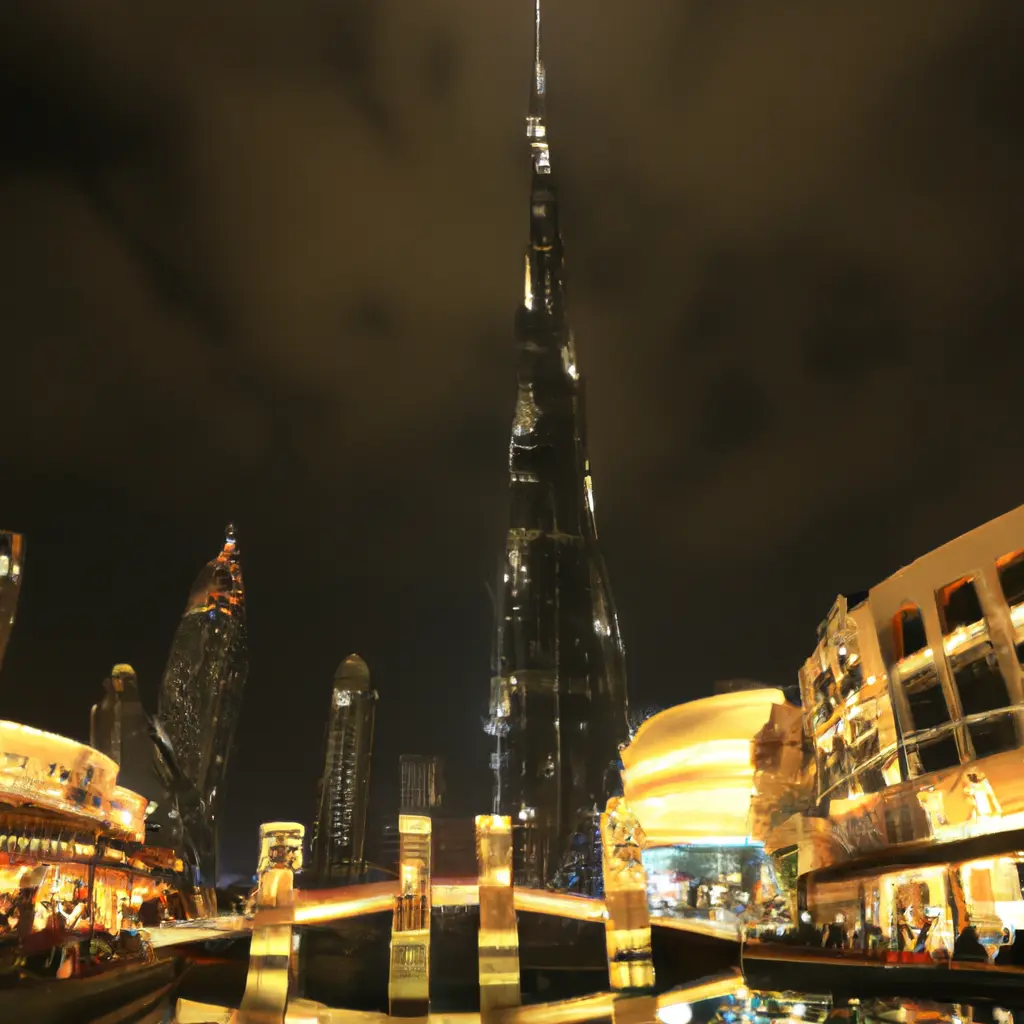Outlook 2022: Reforms, strengthening in Ukraine boost real estate market in UAE

The United Arab Emirates (UAE) real estate market continues to benefit despite the global slowdown, thanks to reforms and geopolitical developments, including the war in Ukraine.
Global commercial real estate yields turned negative in the third quarter of this year for the first time since the COVID-19 pandemic began in the second quarter of 2020, according to U.S. financial services firm Morgan Stanley Capital International.
While Europe is facing its worst performance since 2008, the UAE is setting personal records. In November, Dubai real estate surpassed its highest sales figures since 2011 with more than 10,000 transactions worth $8.3 billion, Dubai-based real estate group Property Finder said. This coincided with a 7.5% year-on-year increase in rental rates.
According to real estate consultants Knight Frank Middle East, prices for premium residential properties in Dubai such as Palm Jumeirah, Emirates Hills and Jumeirah Bay Island are expected to be the fastest in the world in 2023. Growth is also taking place in the affordable housing segment. Imkan, owned by Abu Dhabi Capital Group, is investing $4.03 billion in the residential project, which is expected to accommodate about 5,000 middle and high-income earners.
Prescription for investment
The UAE has recently taken a number of steps to position itself as a safe haven for investment by creating confidence in the form of foreign direct investment (FDI). In 2019, the country introduced long-term visas, or 'golden visas', for the first time, which allow foreigners to live and work in the UAE without the need for a national sponsor, retire and own 100% of a business on the mainland. Abu Dhabi was named the world's best city for pandemic response and vaccination in 2021, according to London-based Deep Knowledge Group. Dubai hosted the World Expo, increasing the number of hotels in the emirate from 711 to 759 from January 2021 to 2022, the Dubai Chamber of Commerce said.
New economic reforms are fueling the growth of small and family-owned businesses, including a law passed last month that aims to turn 200 such businesses into large companies by 2030 with a market value of more than $40.84 billion and annual revenues of $5 billion.
The real state of the war
All this increases the attractiveness of the Emirati market for foreign investors, which, combined with a neutral stance in global politics, is attracting Russian wealth in the face of Western economic sanctions. "The war in Ukraine and Russia has been very beneficial for the real estate market here. People are pointing to the UAE as a safe haven, a place where they are welcomed," said Issat Dajani, chief executive of IMCapital Partners, an investment management and advisory firm in the Middle East.
He also noted that the demographics of foreign direct investment in the UAE are changing. "Historically, a large amount of money came from the Gulf, mainly from Saudi Arabia and Qatar, but also from Jordania, Eastern Europe and Russia," Dajani said. He added that such an influx of funds has waned recently. "I don't think there has been a lot of money coming in from Saudi Arabia or Qatar recently.




Economic forecast
The UAE residential real estate market weakened in 2014 and faced oversupply due to a three-year decline in oil prices, according to Mordor Intelligence, and again recently due to the global pandemic. However, the situation is starting to improve as more people are working and studying remotely from home and looking for more spacious accommodation. Global inflation and interest rates have also increased, directly affecting real estate prices, mortgages and foreign direct investment, as well as affordability, which particularly affects middle class renters and buyers. The luxury real estate sector for wealthy individuals and companies remains more resilient.
Real estate agencies Asteco Property Management, Deloitte, Property Monitor, Morgan's International Realty and ValuStrat forecast that real estate prices in Dubai are expected to rise at a slower pace and that average prices will have to fall by 5-20% for housing in Dubai to be affordable. In the year to November 2022, residential property prices in Dubai rose by 9.5%, with apartment and villa prices increasing by 9% and 12.7% respectively, according to global commercial real estate and investment organization Coldwell Banker Richard Ellis (CBRE).
“But this time we are not facing a global recession but a global slowdown, and we don't have a lot of vacant space as we did in previous recessions. We are behind on development,” says Taimur Khan, head of research at CBRE. He notes that increasing the amount of development projects needed is important for the UAE's adjustment and growth strategy. “There are many new projects in the market in the high price segment, but affordable supply is very important and the lack of it could be a challenge for future growth,” says Khan. He believes the UAE is aware of this and is pursuing projects such as Dubai's '20 Minute City', a transport infrastructure that should ensure that at least 55% of residents can reach mass transit stations within 800 meters of their homes by 2040.
Tags
Comment
Popular Offers




Subscribe to the newsletter from Hatamatata.com!
Subscribe to the newsletter from Hatamatata.com!
I agree to the processing of personal data and confidentiality rules of Hatamatata

